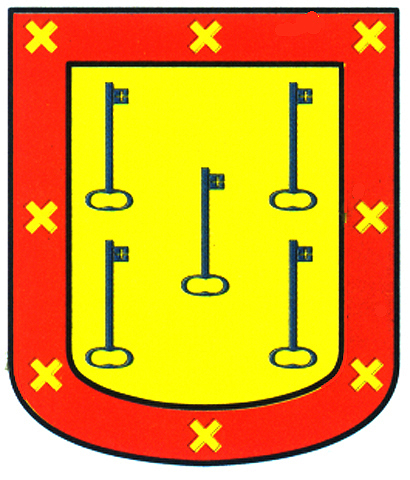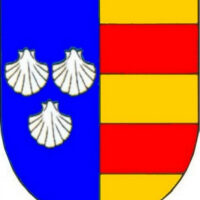In today’s fast-paced world, tracing one’s ancestral roots has become an intriguing and captivating journey for many. The last name Chavez origin, in particular, has piqued the interest of many genealogists and historians alike. This article aims to explore the unbroken lineage of the Chavez last name, tracing its ancestral roots and historical significance. From its origins in Portugal to its prevalence in New Mexico in the late 19th century, this article delves into the rich history of the Chavez family name. Join us as we embark on a journey of discovery and unravel the fascinating history behind this celebrated last name.
Contenido
Origin of the Chavez Surname
Ascending from a small town in Portugal, the Chavez surname is one of the most widespread Hispanic surnames, ranking 22nd overall. Its origin can be traced back to Chaves, and is believed to allude to the waters of Flavius, referring to the Roman emperor Vespasianus. Over time, the name evolved to Chavez, which is the spelling used currently.
The Chavez family name is deeply entrenched in history, with its presence in New Mexico during the 19th century. They were affiliated with renowned clans and influential people, and its ancestral roots provide an insightful look into the past. By delving into the source and definition of the Chavez surname, we can further appreciate its cultural and historical weight, as well as the continuous line of family members throughout the ages.
Early History of the Chavez Family
A captivating chronicle of migration and adaptation, the Chavez family name rises from the town of Chaves in Portugal. As part of the Spanish colonization of the United States, the Chavez family established themselves in New Mexico in the late 19th century. Merging Spanish and Native American customs, the Chavez family created an exclusive culture that still influences the food, music and art of the state today.
The Chavez family had to face numerous obstacles during the early stages of their history. Experiencing discrimination and hostility, they showed tremendous fortitude and courage in overcoming these difficulties. The Chavez family made a considerable contribution to the history of the United States and left an enduring imprint on the development of New Mexico. By exploring the ancestral roots of the Chavez family, we can gain insight into their remarkable story and the struggles they had to endure. The early history of the Chavez family is an inspiring reminder of the strength of will and perseverance.
Tracing Slave Ancestors
Tracing former slaves’ lineage can be a daunting task, but is feasible. Census data is a valuable resource when tracking slave ancestors. These records merely note slaves’ age, gender, and ethnicity, so genealogists must guess their age based on the year of the census. This estimated age is then used to hunt for the slave in previous and future census records. The slave schedules from 1850 and 1860 list the holders’ names and the number of slaves they had, which gives more leads.
The Freedmen’s Bureau Records, formed in 1865 to help ex-slaves adjust to freedom, are another aid in tracking slave ancestors. They include marriage, birth, and death certificates, and labor contracts and apprenticeship indentures, many of which are available online.
Plantation records can provide information on slaves’ names, ages, and family ties. These reports may include wills, estate inventories, and bills of sale. Though these records can be hard to acquire, as they may be in personal collections or archives.
It is important to consider that tracing slave ancestors can evoke difficult and painful parts of American history, such as slavery and racial prejudice. Genealogists should investigate this research with sensitivity and respect, and be prepared for the likelihood of uncovering unpleasant facts. However, tracing slave ancestors can also grant a sense of connection to one’s family history and a deeper knowledge of the conflicts and toughness of those that came before.
Genealogy Trees: How Far Back Can You Go?
Genealogists often wonder: to what extent can one trace their family tree? Many are able to trace their lineage to the 1600s, while others may even be able to go further back in time. That said, it’s essential to remember that genealogical records prior to the 1400s may be met with doubt. This is because with an increase in antiquity comes a decrease in accessible data and materials for tracing one’s ancestry.
Investigating one’s genealogy can be a difficult task, particularly when delving into centuries-old records. This may involve poring over census statistics, historical documents, and even undergoing a DNA test. However, with ambition and persistence, it is feasible to uncover remarkable information about a family’s past. Tracing slaves’ roots can be especially tricky, as documents and knowledge about them is scarce. Nonetheless, it is still possible to make discoveries and forge connections. Ultimately, by researching one’s progenitors, a person can not only feel a connection to their ancestors but also gain insight into their ancestry’s distinct history and cultural meaning.
Family Search: A Comprehensive Genealogy Resource
For those on a mission to uncover the roots of their family tree, Family Search is the ideal tool. This genealogical research website, supported by The Church of Jesus Christ of Latter-day Saints, is completely free to use. Boasting a wealth of records – including birth, marriage, and death certificates, census data, and immigration documents – it’s simple to research and learn about your ancestral background. Whether you’re a novice or experienced genealogist, Family Search has something to offer everyone.
What makes Family Search so user-friendly is its straightforward navigation, allowing you to easily find records with a name, date of birth, place of birth, and other keywords. On top of that, helpful resources such as online tutorials and research guides are provided to help you get started.
The sheer breadth of records available on Family Search is also noteworthy. With more than 5 billion records and growing, you can look for your ancestors from all corners of the world. This is especially handy if your family’s roots trace back to another country, such as Portugal, where the Chavez surname has its origins in the town of Chaves. With Family Search, you can discover immigration papers, passenger lists, and naturalization records.
Family Search is also a great resource to uncover the history and significance of the Chavez last name. By rummaging through records related to the Chavez family, you can unearth information about its beginnings and migratory patterns. You can also learn about noteworthy family members, such as those who achieved distinction in New Mexico in the late 19th century. With Family Search, the possibilities for exploring your family’s history and lineage are endless.
The Enigmatic Symbolism and Heritage of the Chavez Family Crest: Exploring the Rich Cultural Roots of the Chavez Family

The Chavez family crest features a red shield with five blue keys arranged in the shape of a saltire, or a diagonal cross. The red color of the shield symbolizes bravery and fortitude, while the blue keys represent knowledge, faith, and the power to open new doors or opportunities. The saltire shape of the keys may also represent the military service of the Chavez family or the faith they hold.
Overall, the crest represents the Chavez family’s values of bravery, knowledge, and faith. The keys may also signify the family’s role as caretakers or protectors of something valuable, or they may represent the family’s occupation or professional endeavors.
Conclusion
In conclusion, exploring the ancestral roots and historical significance of the Chavez last name has been a fascinating journey. From the town of Chaves in Portugal to the prevalence of the Chavez family name in New Mexico, we have uncovered a rich history. With the help of resources such as Family Search, we can continue to trace our family histories and uncover new information. The unbroken lineage of the Chavez last name serves as a reminder of the importance of preserving our family histories and passing them down to future generations.

Jimenez Last Name Origin: Tracing the Ancestral Roots and Historical Significance of the Name

Huerta Last Name Origin: Tracing Its Roots and Historical Significance

Quintero Meaning Unveiled: Discovering the History and Significance of the Name

Uncovering the Roots: Zapata Last Name Origin and History

The Intriguing Meaning Behind the Name Juarez

